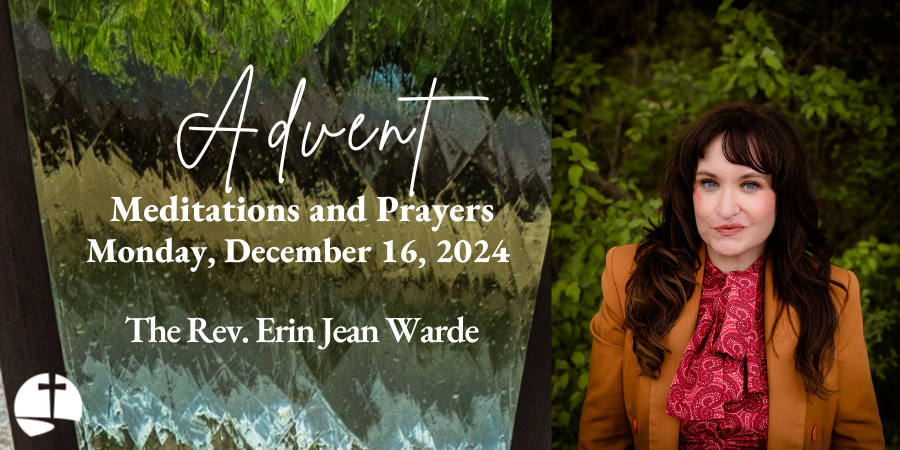Psalm 41, 52 • 44
Isa. 8:16–9:1 ❖ 2 Pet. 1:1-11 ❖ Luke 22:39-53
Today we receive what I believe to be one of the most comforting prayers in Scripture, when Jesus prays: “Father, if you are willing, remove this cup from me; yet, not my will but yours be done.” Because I think we’ve all had times when we’ve prayed to have the cup of suffering removed from us, and of course we have. Who would not want to be spared from suffering, deep grief, or impending death?
But Jesus doesn’t just pray for the cup to be removed from him; Jesus also prays that God’s will would be done. In this prayer, we see the tension between the reality of life, our prayers, and what it means to follow God.
I am freed from the self-judgment I feel when I pray for suffering to be removed from my life, because if Jesus can pray for it, surely I can. And yet, I am also reminded that above and beyond my prayers sits the will of God.
So then, when I pray for deliverance, I know I am joined to the very God who, from the Mount of Olives, prayed the same prayer. And when I feel delivered into the very depths of death and grief I prayed to escape, I know that then, too, I am joined to the very God who knelt to pray in anguish before his death.
The comfort of this prayer is that I don’t have to hide my request for deliverance, and come what may, I remain joined in prayer to the God who will–on that last and final day–answer every one of my prayers, even the ones I wasn’t wise enough to say.
Holy God, be with us in our cries for deliverance and tend to us when we kneel before you in anguish. Give us courage to ask for what we need and trust that your will offers us better things than we can ask for or imagine. Amen.
Hoy recibimos lo que creo que es una de las oraciones más reconfortantes de la Escritura, cuando Jesús reza: «Padre, si quieres, aparta de mí este cáliz; pero no se haga mi voluntad, sino la tuya». Porque creo que todos hemos tenido momentos en los que hemos rezado para que la copa del sufrimiento sea apartada de nosotros, y por supuesto que lo hemos hecho. ¿Quién no querría librarse del sufrimiento, de una pena profunda o de una muerte inminente?
Pero Jesús no reza sólo para que se aparte de él el cáliz; Jesús reza también para que se haga la voluntad de Dios. En esta oración, vemos la tensión entre la realidad de la vida, nuestras oraciones y lo que significa seguir a Dios.
Me libero del autojuicio que siento cuando rezo para que el sufrimiento desaparezca de mi vida, porque si Jesús puede rezar por ello, seguramente yo también puedo. Sin embargo, también recuerdo que, por encima de mis oraciones, está la voluntad de Dios.
Por eso, cuando rezo pidiendo liberación, sé que estoy unido al mismo Dios que, desde el Monte de los Olivos, rezó la misma oración. Y cuando me siento liberado en las mismas profundidades de la muerte y el dolor de las que oré para escapar, sé que entonces, también, estoy unido al mismo Dios que se arrodilló para orar con angustia antes de su muerte.
El consuelo de esta oración es que no tengo que ocultar mi petición de liberación y, pase lo que pase, permanezco unido en oración al Dios que -en ese último y definitivo día- responderá a cada una de mis oraciones, incluso a las que no fui lo bastante sabio como para decir.
Dios santo, acompáñanos en nuestras súplicas de liberación y cuida de nosotros cuando nos arrodillemos. Amén.
Escuche a Erin leer su meditación y oración de Adviento en inglés:



